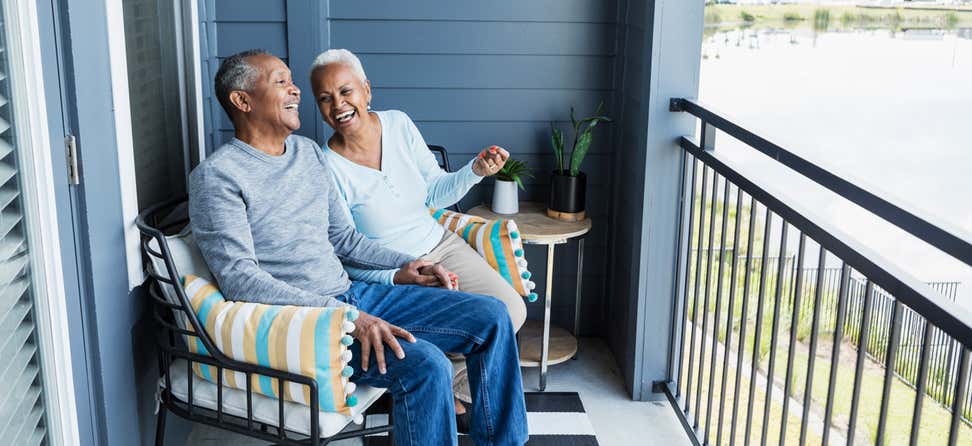Key Takeaways
Many older adults are “house rich but cash poor.” According to the Joint Center for Housing Studies, 4.9 million older adult households spent nearly half of their income on housing in 2016.
NCOA helps seniors explore how to use their home equity wisely, and what other community living options may be available.
Get the facts about the options available to help keep older adults financially secure and independent.
Many older adults own their homes, but struggle to make ends meet due to limited income. Accessing home equity can be a useful financial tool for some older homeowners to age in place.
Housing
- Older adults aged 65+ spend on average $17,500 annually in housing-related expenses. (Bureau of Labor Statistics, 2019)
- 4.9 million older adult households spent nearly half of their income on housing in 2016. (Joint Center for Housing Studies, 2018)
- Black and Latinx older renter households are more likely than white older renters to face severe rent burdens. (Justice in Aging, 2021)
Home Equity
- Nearly 80% of older adults aged 65+ own their homes. (U.S. Census, 2020)
- The average home equity for a senior homeowner aged 65+ is $143,500. (Joint Center for Housing Studies, 2019)
- 9.7 million seniors owe money on a mortgage and/or home equity line of credit. Of these, 30% have payments that exceed one quarter of their income. (Joint Center for Housing Studies, 2018)
- Older homeowners earning under $15,000 annually had only $9,000 in non-housing wealth in 2016, but $80,000 in home equity. (Joint Center for Housing Studies, 2018)
Reverse Mortgages
A reverse mortgage is a type of home loan that allows seniors to convert the equity in their home to cash to meet a wide range of financial needs. Currently the primary product on the reverse mortgage market is the Home Equity Conversion Mortgage (HECM). A HECM is a product insured by the Federal Housing Administration (FHA). Homeowners must meet several basic eligibility requirements to apply for a HECM loan:
- Be age 62 or older
- Occupy the home as the primary residence
- Own the home (existing mortgage must be paid off before or at closing)
- Live in an eligible property
With a reverse mortgage, the borrower accesses cash from their home equity, and retains the title of the home. Borrowers must fulfill the obligations below or they may be at risk of foreclosure:
- Keep the home in good repair
- Pay property taxes and homeowners’ insurance
- Occupy the house as their primary residence
In addition to foreclosure risk, there are other risks with taking out a reverse mortgage, including:
- High closing costs
- Effects on benefits and heirs
- Chance of exhausting funds too quickly
Any older homeowner considering a reverse mortgage must first meet with a government-approved reverse mortgage counselor before their loan application can be processed.
NCOA’s Role
NCOA, through partnerships and resources, helps seniors explore how to use their home equity wisely.
Reverse Mortgage Counseling
NCOA has partnered with GreenPath Financial Wellness–a nonprofit financial wellness organization approved by the U.S. Department of Housing & Urban Development (HUD) to do housing counseling–to offer reverse mortgage counseling to older homeowners. Counseling sessions last between one to two hours and follow a federally mandated protocol. The counselors can also assist clients with applying for benefits and finding local community services. The toll-free number for this service is 855-899-3778. To find a local HUD-approved counselor, visit https://entp.hud.gov/idapp/html/hecm_agency_look.cfm.
Use Your Home to Stay at Home©
NCOA’s Use Your Home to Stay at Home© is the official federally approved consumer booklet for older homeowners considering a reverse mortgage.
BenefitsCheckUp®
NCOA’s BenefitsCheckUp® is the nation’s most comprehensive free, online service to screen seniors with limited income for benefits. It includes more than 2,000 public and private benefits programs from all 50 states and the District of Columbia. All HECM counseling clients must be offered the option of completing a BenefitsCheckUp® screening.









